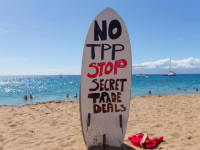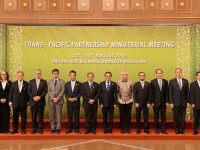The Trans Pacific Partnership (TPP), a massive trade agreement that covers nearly 40 per cent of world GDP, wrapped up years of negotiation earlier this month. The TPP immediately emerged as an election issue, with the Conservatives trumpeting the deal as a source of future economic growth, the Liberals adopting a wait-and-see approach (the specific details of the agreement are still not public), and the NDP voicing strong opposition.
The focal point of most TPP discussion in Canada has centered on two sectors: the dairy industry, who would experience a modest increase in competition and receive a staggering multi-billion dollar compensation package, and the automotive parts sector, which would face Asian-based competition as a result of new, lower local content requirements (the industry is also pressing for a compensation package).
My weekly technology law column (Toronto Star version, homepage version) notes that lost in the discussion over imported butter and Japanese-made auto parts are the broader implications of the TPP. New rules on corporate lawsuits could result in more claims by foreign corporations against the Canadian government over national policies or court decisions (pharmaceutical giant Eli Lilly is already suing the government for $500 million over Canadian patent rulings) and an extension in the term of copyright beyond the international standard would lock down the public domain for decades and potentially cost Canadians hundreds of millions of dollars per year.












